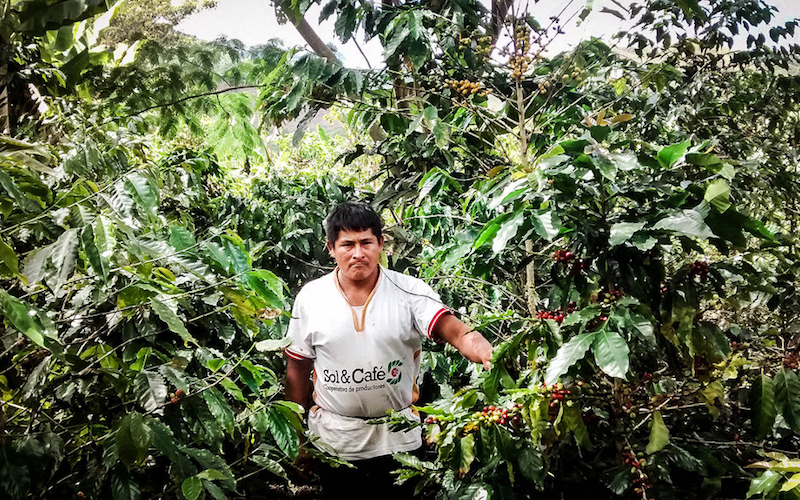
Are CSR and Fair Trade the New Diplomacy?
In a time of corporate greed and relatively few checks and balances on business owners seeking to expand their empires internationally, corporate social responsibility (CSR) and fair trade have become potential avenues of international diplomacy. The era of Trump is upon us, and never before have we seen such blatant disregard for ethical standards of conduct and conflicts of interest.
However, specifically because business seems to control so many resources, a growing number of people seem cognizant of the power of conscious consumption. In addition to the “Buy Local” movement—relatively sustainable by default due to the absence of long-distance supply-chain shipping—there is a new awareness of the need for fair compensation and trade for the suppliers like coffee bean farmers, harvesters, and producers.
Here are a few specific ways companies and consumers can be more socially responsible and, in so doing, act as cultural diplomats.
CSR & Sustainability
One area in which corporations can and should lead is in the arena of sustainability. Since this stance is hardly considered radical anymore—in part because so many publicly support sustainability initiatives and commitments to combat climate change—it’s a stance that seems poised to become the new normal.
A company-wide adherence to sustainable business practice is a good PR move that may prove advantageous when reaching out to form partnerships with European companies, for example. It could also be a good marketing strategy to announce your company’s divestment from fossil fuels, currently a hot topic among college students internationally, as well as more progressive nations like Canada, Norway, and New Zealand.
Many traditionally agricultural areas, such as the mountainous Kashmiri regions in Pakistan, are in great need of a return to more traditional methods of farming that also happen to be more sustainable. So appealing to other cultures’ farming traditions during international business negotiations is advantageous for both cultural and ecological reasons. Sustainable farming techniques like crop rotation are quickly becoming ubiquitous on small organic farms in the United States, so this connection may also prove marketable in reaching out to international producers.
Moreover, countries with resources that have been inordinately tapped, such as Brazil or Chile, are likely to want affiliation with a company willing to divest from fossil fuels. If you’re interested in more resources connected to divestment, check out 350.org, where you can learn more about the movement as well as how to educate employees or community members about the concept.
CSR & Cultural Difference
Whether approaching the issue from a consumer or a corporate standpoint, it’s important to be aware of all players of a company’s supply chain. For example, the California Transparency in Supply Chains Act requires manufacturers and retailers to disclose the steps they are taking to avoid these types of abuses—which may be more common than many realize. The Bureau of Economic and Business Affairs offers a number of resources to help companies conduct successful business abroad, but it’s good to be aware of different cultural practices, as well.

Successful business interaction with people from different cultures requires a bit of research beforehand. High context cultures like those in Asia in the Middle East require a lot of face-to-face interaction and respectful adherence to cultural norms in order to establish trust. A strong relationship is crucial to people in many cultures. U.S. culture, on the other hand, places more emphasis upon efficiency and straightforward negotiation.
CSR & Fair Trade
Fair trade tends to refer to food products like fruit and coffee beans from developing countries, though it can also refer to textiles, plants, and home goods. Fair Trade USA is the main third-party certifier of products sold in the United States with the “Fair Trade” logo, and they ensure safe and humane conditions for workers and producers, as well as a fair price for the trade and use of products and services. The information on the Fair Trade USA site is helpful for both consumers and companies who want to obtain product ingredients or materials from ethically-produced sources.
Because more and more consumers are valuing people and benefits to the planet and our communities over pure affordability, this kind of fair trade certification is growing in popularity. Therefore, not only is fair trade good for people and the planet, but it’s good for profits, as well—the “three P’s,” if you will.
Individuals as Diplomats & Consumers
International diplomacy between private citizens, small businesses, and organizations—as with corporations—can work wonders in strengthening relations between countries. Just look at the Peace Corps and Fulbright programs as examples, as well as college and university-level student exchange and study abroad programs. The Peace Corps is of particular interest due to its practice of paying volunteers a wage no higher than necessary—usually at a comparable level to their neighbors in the surrounding community. In this time of economic uncertainty and job competitiveness, recent college graduates—as well as older Americans—are often drawn to the program in order to gain real-world skills and see a different part of the world, as well.
Here’s a list of sites with more information about companies’ records with regard to human rights, sustainability, the treatment of animals, etc. You might also be interested to learn—either as a business owner or as a consumer—that it’s now possible to become a “B Corporation.” This relatively new certification essentially measures the degree of CSR and ethical, transparent business practices adopted by a company, ensuring that the company does no harm and “creates benefits for all stakeholders, not just shareholders.” This means that everyone in the supply chain, for example, is treated fairly, humanely, and with dignity and respect.
In this era of globalization, our actions have consequences—whether we like it or not. We may as well ensure that our actions work for good, rather than for ill. How does your company or companies you support work for the good of others? It’s an important question to ask.
